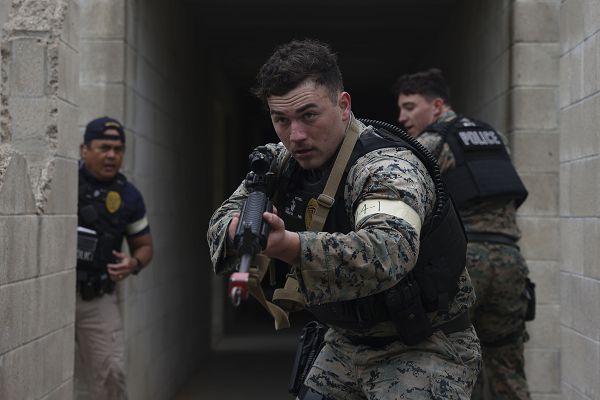
Camp Pendleton, California. (April 18, 2023): In this photo by Corporal Angela Wilcox, Marine Corporal Christopher Mitchell, a military police officer with the Provost Marshall’s Office, Security and Emergency Services Battalion, participates in an active shooter scenario during Semper Durus 23. The exercise is designed to improve regional command and control, interagency coordination, and an installation’s ability to respond to and recover from crises.
The role of the military police officer is like civilian law enforcement with some importance differences. Just like your local police department, military law enforcement officers prevent crime, control traffic, and respond to emergencies. But unlike local police officers, military police are responsible for force protection, counterterrorism, and corrections. Each branch has its own law enforcement division that is responsible for maintaining security and discipline while enforcing laws on military bases.
To become a military police officer, candidates must pass Basic Training and then complete the Military Police Basic Course at Fort Leonard Wood, Missouri. This 20-week program consists of One Station Unit Training and on-the-job instruction in police methods. Part of this time is spent in the classroom, and part takes place in the field. Students learn patrolling tactics, drug investigations, handling domestic disturbances, and how to secure highly sensitive military installations.
Officers in the MP Corps manage law and order on base, police intelligence operations, and maneuver support for military units in the field.
The United States Army Military Police School (USAMPS) is a multiservice training facility that teaches more than 16,000 Army, Air Force, Navy, Marine, civilian, and foreign students annually.


